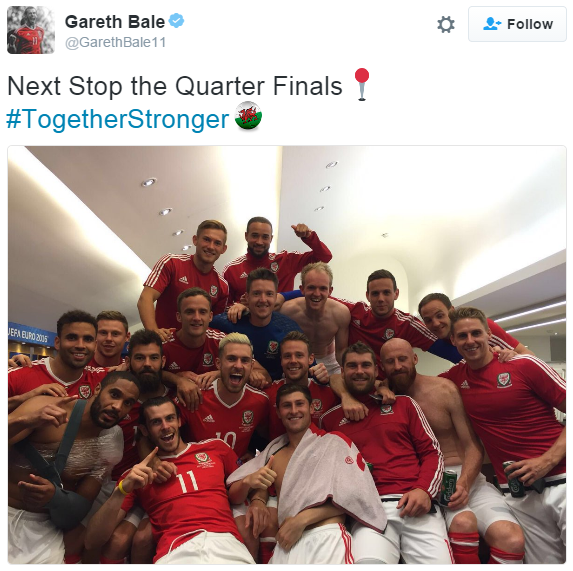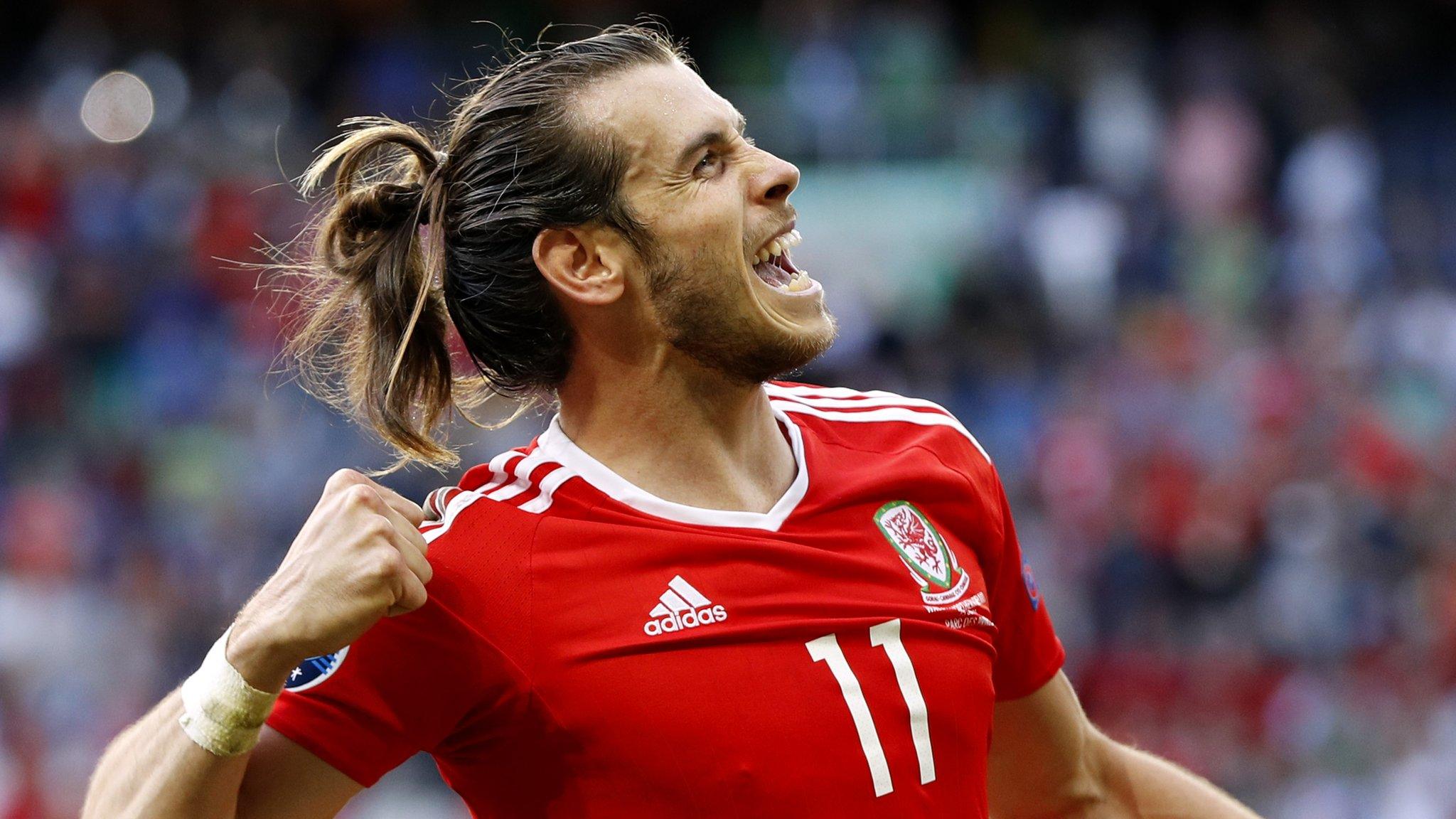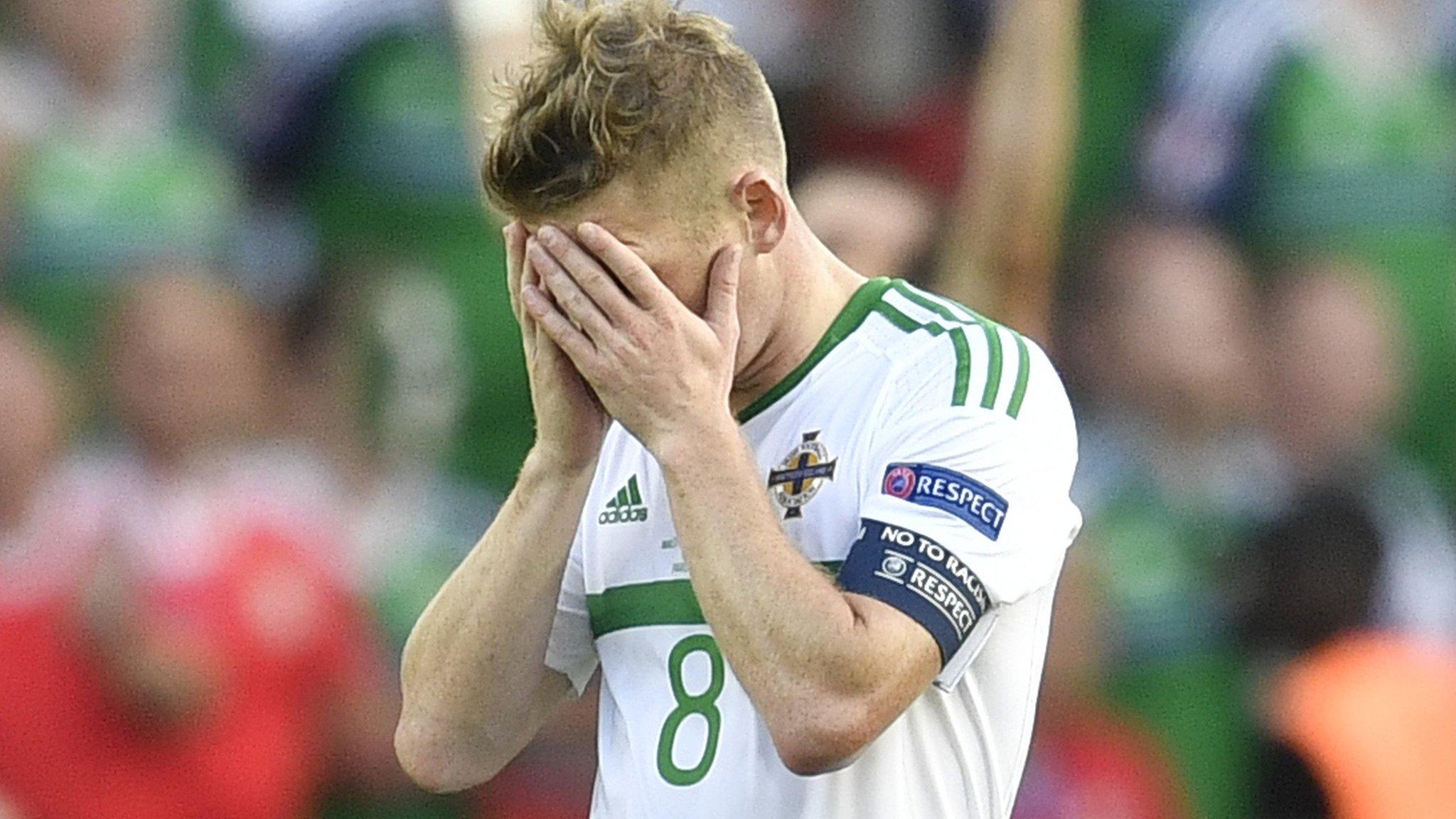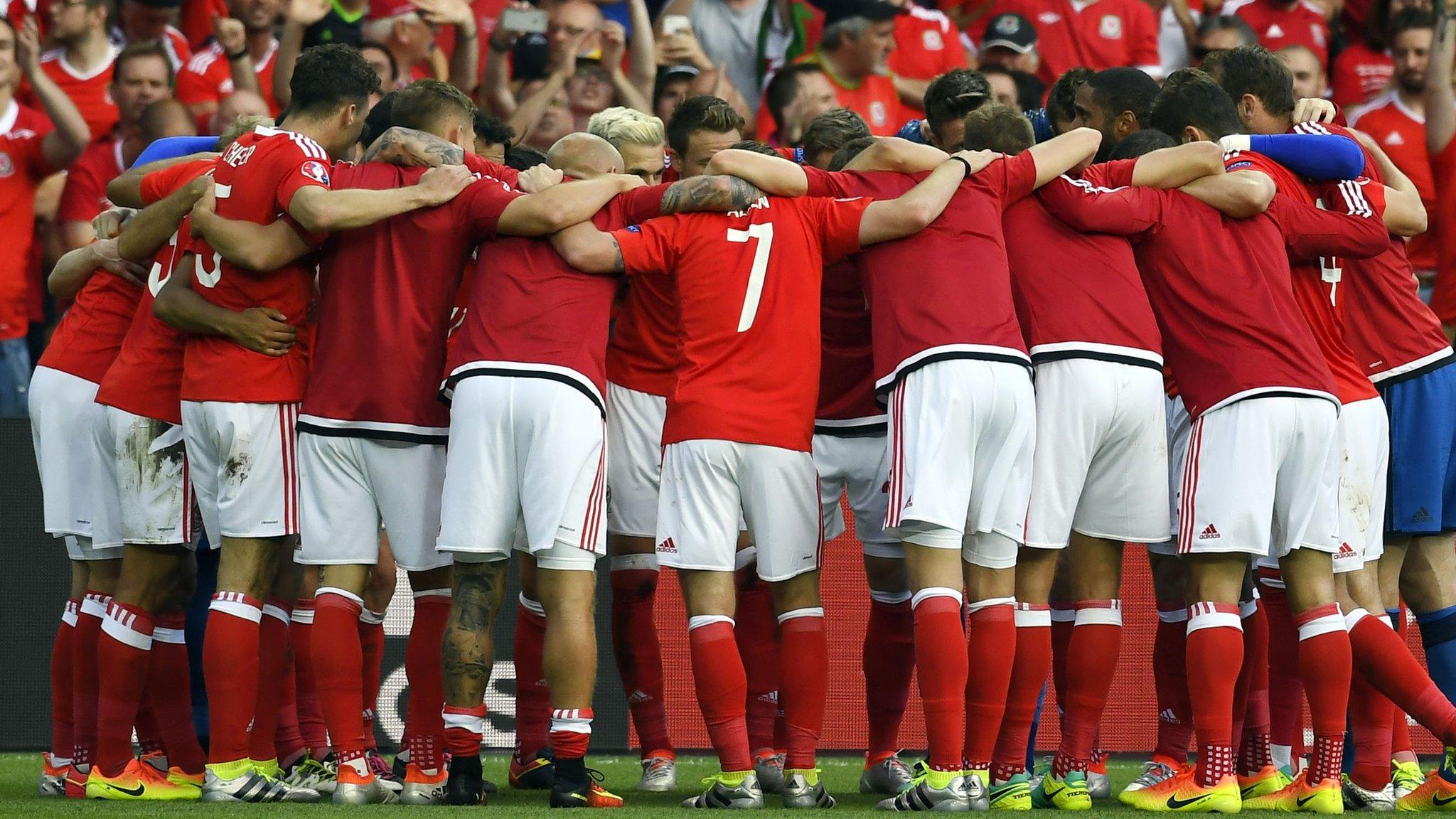Euro 2016: Wales are allowing a nation to dream after reaching quarter-finals
- Published
With fans whose pre-match song of choice is by Zombie Nation, Wales' Euro 2016 campaign feels like a footballing nation rising from the dead.
Absent from major tournaments for 58 years, Wales have had to watch on enviously as international football's elite do battle at World Cups and European Championships.
Yet their rise has not merely ended that wait for qualification; their march to the quarter-finals in France has now captured the imagination of an entire nation.
While a sea of red shirts roared Wales on to victory over Northern Ireland in Saturday's second-round tie at Paris' Parc des Princes, a similar mass of bodies gathered at Cardiff's fan zone and countless bars and living rooms across Wales.
The country is captivated, and its people are daring to dream.
"It goes beyond football to the whole nation, people who don't even like football," said former Wales striker Dean Saunders.
"The players have made the whole nation proud even if we get knocked out in the next round."
Wales' players refer to their fans as the Red Wall, in homage to the Yellow Wall that German club Borussia Dortmund's fans form at their imposing Westfalenstadion home.
Their vocal support and good behaviour outside grounds has brought praise from French media and tourism companies, and they were at their vociferous best in Paris.
Wales' players and coaching team insist they cannot look any further than their quarter-final but, as far as the Red Wall is concerned, manager Chris Coleman sees no reason to curb fans' optimism.
"We won't look ahead but the fans can get carried away. Keep dreaming, there's nothing wrong with that," he said.
"They had to be patient with us [against Northern Ireland] - they sensed we were under pressure but they stayed with us. That's when you need togetherness. They were fantastic."

Gareth Bale tweeted a photo of a happy Welsh dressing room
'Courage and strength'
If the demolition of Russia was an exhibition of thrusting, enterprising football, the triumph over Northern Ireland was one built on patience and perseverance.
Coleman praised Northern Ireland for their defensive display - well organised and immaculately disciplined as they contained the likes of Gareth Bale and Aaron Ramsey.
Yet Wales gamely stuck to their task and their persistence eventually paid, Bale freeing himself from Northern Ireland's shackles to produce the match-winning moment of class.
"We needed our team spirit, when you're not playing well but you dig in," said Coleman.
"That's when you're showing your courage - and that's strength. Not giving up when you have nothing left to give, finding something, and we had to do that."
Creating a legacy
Whether it is Coleman, Bale or any other member of the squad, Wales have insisted throughout their time in France there is no limit to their ambition.
Bale says he believes Wales can win Euro 2016, while Coleman has said qualifying for a first major tournament for 58 years should usher in a new era of regularly competing at such events.
This is a team already immensely popular, and the further they progress in France, the greater an inspiration they will be for future generations.
"It is not just about this tournament and what is going on now but we want to qualify for other tournaments and grow football in Wales, get other kids playing and be role models to make football even bigger in Wales," said Bale.
"Hopefully that will give us a better national team in the future as well."
Wales and Iceland (who are undefeated in Euro 2016, their only major tournament appearance) have excellent records in major championships - but it should be noted that Wales have played nine games compared to Italy's 119 and Germany's 152.
What next?
Even if Wales go out of the tournament in Friday's quarter-final against Belgium in Lille, one could argue Wales' campaign is a success.
However, such carefree contentment does not register with this Welsh side as they prepare to face the world's second-ranked team.
Yet Marc Wilmots' men were in the same position when they were memorably beaten by Wales in Cardiff in a qualifier for this competition last year.
The parties that followed Wales' qualification, Group B success and beating Northern Ireland have become part of the nation's football folklore.
But reaching the semi-finals in France could take celebrations to a similarly uncharted level.
- Published25 June 2016

- Published25 June 2016

- Published25 June 2016
